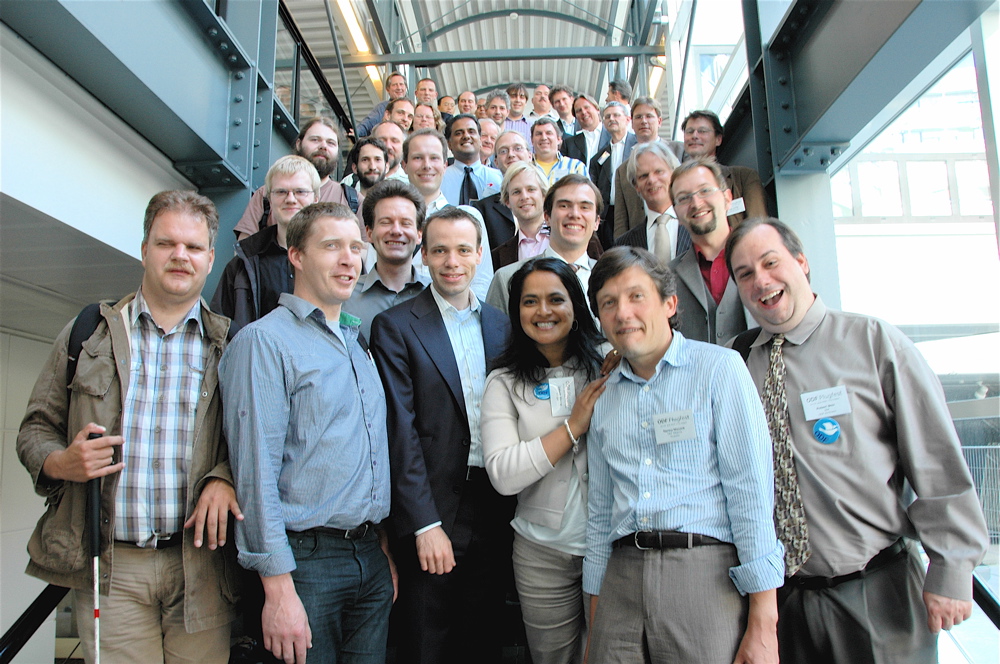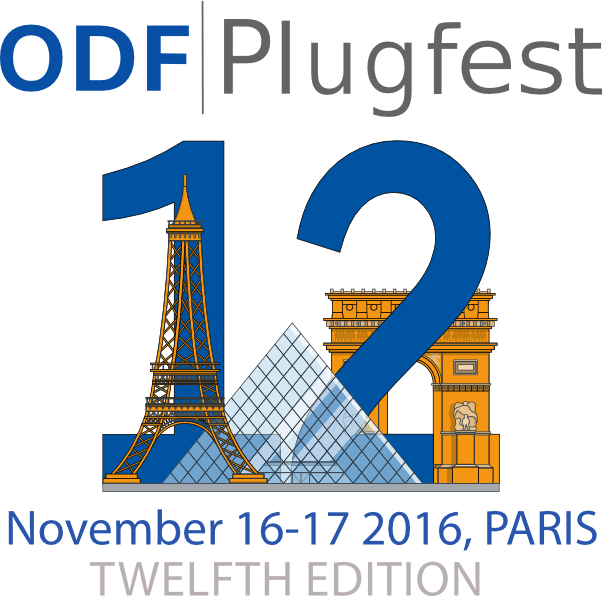The ODF plugfests are an ongoing series of vendor-neutral events, bringing together implementers and stakeholders of the standard. The goal is to achieve maximum interoperability by running scenario-based tests in a hands-on manner and discuss new and proposed features of the ODF specification.
The twelfth ODF plugfest was hosted by the French Direction Interministérielle du Numérique et du Système d'Information et de Communication d'État (DINSIC) , with support from Logius and organised by OpenDoc Society.
Check out the report, of have a look at the various presentations. Or check out the places where the event happened: like the venues and the restaurants. Don't forget to read about the house rules.

About the plugfests
The first ODF plugfest was held in the Hague in 2009, and was launched by the Netherlands minister of Foreign Trade Frank Heemskerk.
Meanwhile plugfests were held all across Europe - in Orvieto (Italy), Granada (Spain), Brussels (Belgium), Borough of Windsor and Maidenhead (UK), Berlin (Germany) and London (UK). (read more...)
About ODF
Open Document Format (ODF) is an international family of standards that is helping to store and process information more efficiently. ODF transcends specific applications and providers, and replaces legacy formats such as .doc, .wpd, .xls and .rtf.
ODF is not only more flexible and efficient, but also future proof. ODF can help you regain control over your documents (read more...)
OpenDoc Society
OpenDoc Society brings together individuals and organisations with a stake or interest in the openness and future of documents to learn from each other and share knowledge - about core technologies, available tools, policy issues, transition strategies, legal aspects and of course the latest innovations. Whether you are a developer, publisher, decision maker, educator, vendor, IT manager, academic, writer, archivist or just an involved citizen - OpenDocSociety.org brings you together with interesting like-minded people to learn from and cooperate with. OpenDoc Society is supported by a significant number of organisations (continue reading...)

